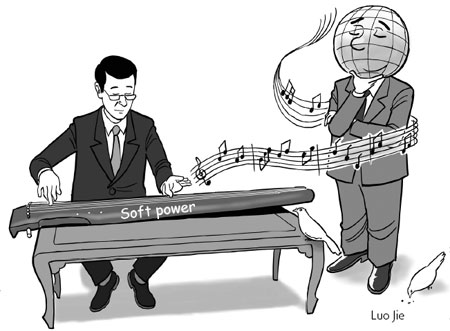
Published 28-05-2013, 14:50
 Professor Joseph Nye of Harvard University, the author of the concept of "soft power,” has recently reflected on how his brainchild is faring in the hands of China and Russia. His conclusions are unflattering. Nye’s verdict is that Russia and China simply do not understand what soft power is – let alone have it and know how to wield it. Indeed, his article, published in late April in Foreign Policy, is titled "What Russia and China Don’t Get About Soft Power”.
Professor Joseph Nye of Harvard University, the author of the concept of "soft power,” has recently reflected on how his brainchild is faring in the hands of China and Russia. His conclusions are unflattering. Nye’s verdict is that Russia and China simply do not understand what soft power is – let alone have it and know how to wield it. Indeed, his article, published in late April in Foreign Policy, is titled "What Russia and China Don’t Get About Soft Power”.The author’s main charge is that the leaderships of these two countries fail to understand that soft power cannot be generated and deployed by the state but, rather, is a by-product of free societies that possess a thriving private sector and civil society. In fact, according to Nye, soft power stems largely from "everything from universities and foundations to Hollywood and pop culture – not from the government”. The bottom line is that no matter how much cash nations such as Russia and China throw at the promotion of their values, their ability to influence others through soft power is bound to be minimal as long as their societies remain repressive.
It cannot be disputed that the United States – along with the Western nations that it leads – has emerged as the most widely admired model to emulate and that, as such, it has unmatched reserves of soft power. Indeed, to a considerable extent the West’s victory in the Cold War can be attributed to the appeal of the liberal-democratic values it promotes. Thanks to its mode of government, the US today is the largest and most innovative economy, the main driver of the Internet revolution and the largest reservoir of popular culture. And with the related spread of the English language as the globe’s lingua franca, its position as the sole "soft-power superpower” has been consolidated.
Nevertheless, Professor Nye’s conclusions are arguably short-sighted. Not least, he overlooks the uncomfortable fact that, having undergone post-totalitarian liberal revolutions, Russia and China are surging ahead, while the US/West remains mired in a systemic crisis caused by its thriving but untrammelled private sector. For the first time since its rise some two centuries ago, the West is demonstrably faltering while the East is rising.
Another point the US apparently "doesn’t get” is that although Russia and China are unlikely – at least in foreseeable future – to be able to compete with the US/West’s soft power in the global arena, they will almost certainly continue to exercise a strong influence in their respective backyards. Thus it is very unlikely that the US will become the dominant pole of attraction in strategically significant Central Asia, where Russia possesses unchallenged clout stemming from its imperial history.
And then the entire soft power calculus must surely be fundamentally reappraised in light of the ever-growing impact of the Internet. If – as Professor Nye rightly points out – the main generator of soft power is freedom, then the mindset of the Western, Russian and Chinese public will increasingly be formed not by any specific model of government but by a new global consciousness spontaneously evolved via the Internet. The ramifications of this development for the shaping of the global balance of power are bound to be enormous.
Questions:
- •Should Russia be concerned about its relative lack (that is, in comparison with the US) of soft power?
- •Is the concept of soft power at all useful today, given the advent of globalization and the Internet?
 The topic for the Discussion Panel is provided by Vlad Sobell,
The topic for the Discussion Panel is provided by Vlad Sobell, Editor, Expert Discussion Panel
Professor, New York University, Prague
Editor, Consensus East-West Europe
Expert Panel Contributions
(Part II)
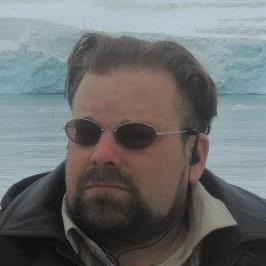 Mark Sleboda
Mark SlebodaSenior Lecturer and Researcher
Department of International Relations and Centre for Conservative Studies
Sociology Faculty
Moscow State University
What Joseph Nye doesn’t get about soft power
Professor Nye contends that Russia and China are trying to generate soft power from the top down by throwing money at it and are thus doomed to fail because they lack a "free and open society”, which self-generates attractive soft power.
There is no question that America remains the undisputed hyperpower of soft power – through such vehicles as Hollywood, pop culture, video games, the consumer brand appeal of its corporations and products, its NGOs and foundations, think-tanks, universities, the English language, its mass media, and its domination of the Internet. And undeniably there is still the largely attractive appeal of the US’s liberal democratic system of government, its wealth, and its moral authority on humanitarian issues and democracy.
However Nye underestimates, or is in wilful denial about, how much all of this supposedly independent, civil-society generated soft power depends on the funding and initiative of the US government.
Many American critics have noted Hollywood’s open collusion with and material support from the Pentagon and the CIA in what has been termed the "Military-Entertainment Complex”. The Air Force, Army, Marine Corps, and Navy all share offices in a Los Angeles office building geared toward Hollywood. The Defense Department and CIA both quietly maintain entertainment-industry liaison units in Washington D.C. that closely collaborate with filmmakers. The Pentagon provides taxpayer-subsidized access to Pentagon hardware for the needs of the filmmakers, and the Pentagon aggressively permits and denies such access on the basis of a filmmakers’ loyalty to a pro-US military message. The Pentagon has even begun soliciting films for production and in internal documents has referred to the military as a "product to be sold” to the US and global public via Hollywood. This has been clearly demonstrated in such recent films as Black Hawk Down, Battleship, and Argos, which can be accurately described as advertisements for US foreign policy and militarism.
There are more than 2 million US-registered NGOs, a major vector of US supposed soft power. While there are exceptions, the majority of them – especially those that do work in other countries – rely heavily on US government funding, either directly or through middle-man institutions. One could even argue that it is oxymoronic to call an organization that is government-funded a non-governmental organization. As David Rieff wrote in The New Republic, "Government funding, as anyone who knows the first thing about how NGOs actually function, implies a measure of government control over where and how NGOs operate. In the particular case of US NGOs, the situation has been one of almost complete dependency on government going back to Vietnam days.”
The US government spends at least $60 billion a year in foreign aid, a considerable portion of which is directed through NGOs and GONGOs (that is, NGOs set up by governments) to enact US foreign policy aims. US AID, one of the major distribution hubs for this NGO largesse and recently kicked out of Russia, alone requested $34 billion for 2013. Soft power is also exercised internationally through US grants, scholarships, universities, exchange programs, language and cultural promotion programs, think-tanks, and foundations – most of which depend on US government funds. The Voice of America, RFE/RL, Alhurra, and other similar institutions are direct American government propaganda outlets directed at the citizens of other countries for the purpose of soft power dispensation.
There are other examples. The Internet was invented by DARPA, the US’s Defense Advanced Research Projects Agency. It has even been recently confirmed that Modern Art was deliberately promoted and fostered by the CIA as a soft power weapon directed at the Soviet Union during the Cold War.
The truth is that much of America’s soft power, contrary to Joseph Nye’s assertions, depends very much on government funding, initiative, and organization. It wouldn’t exist without it. Money makes the world go around, and is far more important than abstract perceptions of mythical "free and open civil societies” when it comes to the generation of soft power.
Nye is also extremely projectionist and ethnocentric in his mistaken belief that the values and perceptions of the world that he and most Westerners share will automatically appeal and provide an attractive model for the Rest of the World. Soft power is hampered when policies, culture, or values repel others instead of attracting them. An example of this is the recent drive by many Western states to the societal normalization of homosexuality and other sexual taboos, which is viewed negatively by many other societies.
Then there are also the economic difficulties and massive debt the US is facing, as well as its decline in moral authority due to its failed – and illegal – militarist and imperialist adventures in Iraq, Afghanistan, and Libya, the widespread torture and kidnappings exposed to the world in Abu Ghraib and Guantanamo Bay, drone assassinations as an instrument of foreign policy and other such questionable phenomena.
Russia, on the other hand, has many growing vectors of soft power, which it is starting to take advantage of in a "smart power” strategy. These include the Russian Orthodox Church, the Russian language, classical Russian literature, music and ballet, the remarkable success of Russia Today (now known as RT) in the US and UK cable markets and on the Internet. In light of the hostility to US policies in the Middle East and around the world, even Putin’s firm foreign policy resistance to the US and adherence to the UN Charter’s principles of sovereignty and non-interference are proving a powerful soft power weapon.
While Russia and China still face a long road ahead in the development of soft power to the scale of the US, they come off quite well in comparison with most other countries. And in an increasingly multipolar world, US soft power has passed its high tide mark, while Russia and China’s soft power is on the rise. As long as Russia and China keep intelligently using government funding, initiative, and support to spur their own civil societies to generate soft power, as the US has always done, then they are doing exactly the right thing. And that’s what Joseph Nye doesn’t get about soft power.
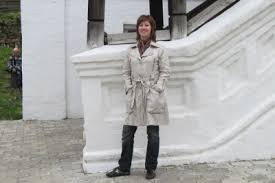 Ekaterina Blinova
Ekaterina BlinovaFellow of the American University in Moscow
Nizhniy Novgorod
Russia can tap new sources of soft power, while the US often undermines its own appeal through its actions
Joseph Nye is right about the lack of soft power in Russia today. And the US certainly is the unchallenged leader in the use of this powerful instrument, which helps to popularize Western values. Indeed, the US is winning the soft power global competition hands down thanks to its highly developed social institutions and well-articulated ideology of freedom, democracy and justice, not to mention cutting-edge technologies and popular culture.
In the 20th century the Soviet Union had an active and highly developed propaganda machine – internal and international. Despite the flaws of its Communist ideology, it possessed a network of international institutions and deployed its impressive achievements in science, culture and sports as a PR instrument, not dissimilar to that of soft power. After the collapse of the USSR, most of the important connections abroad were lost or "frozen” and the propaganda machine stopped in its tracks.
Professor Nye is absolutely right. Soft power should not be generated and deployed by the government but by free society with the financial backing from the private sector. Owing to its historical traditions the Russia state will continue to play a major role, while the private sector will increasingly take over the task. Unfortunately, however, Russian billionaires do not appear to be spending their money on creating a "positive image of Russia”. They are not exactly eager to donate to patriotic or Russophile organizations or sponsor the international popularization of Russian culture, art and traditions. And, of course, there is a lack of such NGOs inside Russia, let alone abroad.
The rise of Internet opens new opportunities. However, the notion that the global Internet community can somehow supplant the nation-centered approach is, in my view, wrong. Although there exist universal values, such as for example "human rights,” the civilization- and ethnic-centered approach is here to stay. We live in a world of myriads of traditions and national and ethnic diversity, which is intrinsically very valuable. The world is not ready yet to form some kind of homogenous Internet society based on unified values.
Since the Kremlin today subscribes to realpolitik and a pragmatic approach that has no ideological message, Russia has an opportunity to win new allies – the traditionalist regimes, which fear a new "Western crusade” on the one hand and the Western right-wing conservatives who abhor the model of an ultra-liberal society on the other. Some European commentators have already drawn attention to this. For example, Marcel H. van Herpen, Director of the Cicero Foundation, writes in an article titled "Putinism’s Authoritarian Allure”: "A surprising phenomenon is increasingly apparent in Western Europe: far-right parties are moving away from their traditional anti-communist and anti-Russia ideologies, with many expressing admiration – and even outright support – for Russian President Vladimir Putin’s regime.”
In any comparison of Russian and US foreign policy, we must take a look at the other side of the coin. American foreign policy suffers from serious flaws that partly undermine the achievements of US soft power, namely interference in the domestic affairs of other nations and the attempts (often premature) to change countries’ social and political environments. Furthermore, some Western human rights foundations pin the label "dictator” on any state leader who shows disloyalty to the US, thus laying the groundwork for a possible regime change.
In this context, we should recall the UN Resolution 39/159 (at the 102nd plenary session of 17 December 1984) on the "Inadmissibility of the policy of State terrorism and any actions by States aimed at undermining the socio-political system in other sovereign States”. It states the following: "The General Assembly… urges all States to respect and strictly observe, in accordance with Charter of the United Nations, the sovereignty and political independence of States and the right of peoples to self-determination, as well as their right freely, without outside interference and intervention, to choose their socio-political system and to pursue their political, economical, social and cultural development.”
William Dunkerley
Media business analyst and consultant
Soft power has cooked Russia's goose
Professor Joseph Nye mistakenly characterizes Russia's soft power problem. He claims Russia doesn't know what soft power is and that Russian society is too repressive an environment for it even to germinate there.
It is true that Russia has a soft-power related problem. But it is not the one identified by Nye. The real problem is that since the start of Vladimir Putin's leadership the country has been a helpless victim of hostile soft power exercised by Putin's political enemies. That's what cooked the country's goose. It's spoiled Russia's aspirations for a greater role in the world community.
Today, much of the world considers Putin to be a despot who will stop at nothing. Senator John McCain, for example, once accused Putin's Kremlin of instituting a "state-run kind of Mussolini style government". News stories have asserted that Russia uses energy as a weapon, that it invaded Georgia, that Putin ordered the murder of Alexander Litvinenko, and that he clamped down on Russia's free press.
But all of these allegations lack a factual basis and have been effectively debunked. I wrote a book about the Litvinenko matter titled The Phony Litvinenko Murder. It shows how the entire story about Putin ordering the death of the reputed former spy was a fabrication. The narrative was concocted by the late Boris Berezovsky, a wealthy archenemy of Putin's, and spread internationally by a PR firm that he hired. It was an exemplar of the use of soft power, albeit hostile.
Professor Nye is perhaps testament to the effectiveness of hostile soft power. He's apparently been successfully duped by the many phony stories.
Before Russia has any chance of using soft power as a positive force, it will have to learn how to advantageously deal with the hostile soft power that is being used against it. Until Russia does so, it will lack the credibility and gravitas it needs to wield soft power of its own.
Lamentably for Russia, however, it seems unlikely it will get its act together on this. Recently, Putin ignored a Russian-American private sector initiative that offered a credible solution. It's a project called "Russia without Spin," which I strongly support. Instead Putin has cast his lot with the Ketchum PR firm, his longtime advisor.
So it looks like Russia's goose will remain cooked for the time being. It seems a tragedy. In all the instances where hostile soft power has smeared Russia's reputation, the truth appears to have been on Putin's side. But he has not grasped the opportunity to turn things around. Instead, he has allowed his political enemies to besmirch the country's image with impunity.
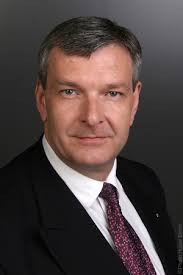 Alexander Lieven
Alexander LievenPrivate Scholar of History and International Relations
Former Member of the German Council on Foreign Relations
Russian Soft Power or "The Tschitscherin Conundrum”
As a descendant of one of the German families that served the Russian empire for centuries, I may be excused for having a rather personal approach to this subject. An apparent lack of a Grand Strategy offers a vast range of topics to fret about. I will name but a few.
Soft power relies, in my view, on any number of sources.
Personalities are one. "Beautiful people”, "glamour” in the French sense or the Italian "eleganza” are invitations to identify with the respective cultures and refinements. Refinements that took many centuries to accomplish. Where are the Russian invitations with such a mass appeal?
Another one is the so called point of sale, where you personally meet the not so glamorous. Two years ago we went on a 36-hour train ride from Berlin to St. Petersburg. We were to join a party of my gentlemen’s club to visit all the sites. We were expecting and had paid to travel first class in a private compartment. It was most certainly not first class. Unfortunately the compartment was cramped and dirty and we were ripped off by the train’s onboard restaurant. The service was Soviet style. Nonetheless, we enjoyed our eastern adventure very much and St. Petersburg was just fantastic. The ride back was comparably uneventful except for our two-hour stop in Orscha in Belarus, where we lingered in the sunshine and watched a lively weekend crowd.
Recently I attended a two-day Russian-German conference in Berlin on the image that those countries have of each other. Highly qualified scientists, media people and industry lobbyists from both countries tried to make sense of all the questions we chewed over and to put them into the relevant national perspectives. But all kinds of ridiculous blunders marred the experience. An uphill struggle I am willing to endure.
So, soft power requires a lot of soft touches. That may be a cliché, but most people fall for the soft touches. It is a mindset that comes from self-assuredness. Self-assuredness that can afford the long view of one’s interests.
The "clashes of civilizations” at the beaches and hotels of the Mediterranean and their reverberations shall not concern us here.
I would suggest to Russia to charm the traditional German elites, preferably those of Baltic origin, still active and influential in our Foreign Office, for instance. Imperial Russian grandeur was – "Excusé moi!” – unthinkable without them. And still, even today many relics and monuments in Russia are deplorably neglected. By caring for one’s history methodically one could reactivate a lot of old friends.
When we speak of a nation’s soft power we should remember that nation states at this very moment are losing ground heavily against global corporations that don’t care about nationalities at all. Are we asked to devise a charming illusion at home and abroad or shall we try to help with a rollback? Will it be a product approved by accountants or will it have some kind of soul left? Will it be an algorithm or will it be a bubbling cuveé of human genius, human love and human industry? Are we to lavish it onto the world or do we think of it as the last resort?
Lyricisms aside, I see a dire and widespread need for enlightenment through culture and art – a human right if ever there was. Russia’s and Germany’s contributions are among the best there are. But as of now, together we are one of the world’s strategic nightmares.
Maybe then we should try to live as twins of sorts rather than like a would-be couple that’s already been courting too long.
 Andrej Kreutz
Andrej KreutzAdjunct Professor, University of Calgary
Affiliated Expert, European Geopolitical Forum
To boost its soft power, Russia needs to overcome its "intellectual identity crisis”
The Russian Federation is rightly concerned about its relative lack of soft power and certainly should be. Although the theoretical concept of soft power was introduced into present use by Joseph S. Nye Jr. at the beginning of the 21st century, its concept and practical use are not new. France and Britain successfully promoted their own version of liberalism and progress in order to increase and justify their power and influence. The Russian Empire also claimed to be the protector of the Slavs and Eastern Orthodoxy, as well as the transmitter of European civilization in the vast expanse of Eurasia, and the USSR, and at least until the 1960s, was seen by many as the champion of socialism and an ideological alternative to Western capitalism. Such a world-wide perception and Moscow’s support of the national liberation of the Afro-Asian and Latin-American peoples, then provided the Soviet Union with many political assets and increased its strength much above its real potential and strategic resources.
Post-Soviet Russia found itself in a quite different situation. Because of the collapse of the Soviet Union, the subsequently greatly diminished territory and material resources, and the replacement of the "socialist” system by a clumsy imitation of Western capitalism, its external image had to become different. At the same time, due to the persisting geopolitical rivalries and some unsolved domestic problems, the country was unable to get Western nations’ acceptance as a "democracy” and part of the "club”. Russia’s subsequent uncertain situation was made worse by the Western information war against the nation, which started well over a decade ago and markedly intensified in 2011. At least for now, all Russian efforts to defend themselves and to alleviate the situation have not succeeded.(1)
The soft power of a country cannot arise just from the skilful use of media or even the most sophisticated communication mechanism. The country that wants to achieve it has to enjoy an essential social domestic consensus and be able to offer some ideas and programs corresponding to the needs and interests of the others. Without that, all propaganda efforts would not be successful. Russia not only has a wealth of natural resources, but also many cultural values to offer. However, in order to be able to do that it needs to overcome its "intellectual identity crisis”, which was mentioned by Sergei Karaganov (2), and take into consideration past and present animosities regarding neighbours and other potential partners. As the Russian Federation is relatively less powerful than the Soviet Union or the Russian Empire, it would therefore be necessary to avoid any unnecessary conflicts and tensions. Vladimir Putin himself admitted that "Russia should scare its neighbours less, but it should work to rid itself of the imperial image which prevents even Europe from cooperating with us.”(3)
In spite of the advent of globalization and the Internet, the concept of soft power can still be a useful and an important one. Freedom has never been unlimited and there have always been some official or unofficial rules for its use and understanding. A new global consciousness, which could spontaneously evolve via the Internet still has a long way to go to abolish the enormous differences among the countries and cultures.
1 -- Attitudes to Russia Worsening, Poll Says”, Moscow Times, May 23, 2013
2 -- Sergei Karaganov, "Geopolitics makes a global comeback,” Vedomosti.ru, April 15, 2013
3 -- Conversation with Vladimir Putin”, Official Website of the Prime Minister of the Russian Federation, 15 December 2011
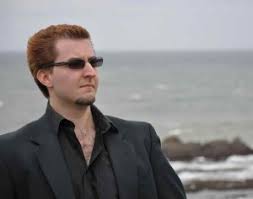 Anatoly Karlin
Anatoly KarlinDa Russophile
Russia needs to develop its "hard" soft power
I think we have to make a distinction here between "soft" soft power and "hard" soft power.
The US's "soft" soft power is, of course, overwhelming. By "soft" soft power, I mean its accumulated cultural capital: The popularity of the English language, Hollywood, the Ivy League, Apple and American Pie, and so forth. If this were a Civilization game, the Americans would be maxing out the "culture" meter. There is no feasible way for Russia to ever overtake the US in this respect, if only because its limited population constrains the ultimate scope of its civilization (China is another matter).
What is of greater interest, and can be influenced relatively cheaply, is "hard" soft power. By "hard" soft power, I mean the ability to harness support for a sovereign internal and foreign policy line. "Hard" soft power is promoted by media and cultural organizations catering to foreign audiences, and can be measured by indicators such as a country's international approval rating, which the BBC World Service measures every year. This rating can, in turn, affect diplomatic influence, investment attractiveness, and promulgate a general sense of moral vindication among the citizenry.
Lavishing resources into raising international approval ratings - that is, building up "hard" soft power - can produce vast returns on investment. There are several ways this can be done:
Number one: Avoiding embarrassing situations so far as possible, and responding to them in a timely and comprehensive way as soon as they arise. The entire Magnitsky debacle is a case study in how not to manage a genuine screw-up followed up by an oligarchic PR attack. Khodorkovsky is an earlier example. The ECHR eventually concluded that the case was NOT politically motivated, but so far as everyone and their dog is concerned the Menatep bandits are martyrs for democracy. The scope of the PR failure here is astounding. But the Russian government just doesn't seem to care, leaving the heavy lifting to bloggers (!) like PoliTrash.
Number two: Countering negative "hard" soft power. As one of the few countries to pursue a truly sovereign foreign policy - China is another example; so is Venezuela and Iran - it is not surprising that Russia would come under intensive information attack. One need do little more than recall Western coverage of the 2008 South Ossetian War, in which the victim was literally presented as the aggressor. Even institutions like the EU were later forced to acknowledge the truth, but no matter - the first week of coverage permanently implanted the perception it was big bad Russia that attacked plucky democratic Georgia, and neocons continue to push the lie even though a five minute perusal of Wikipedia would totally discredit it.
Information attacks are an inescapable price of sovereignty. However, the effects of such attacks can be minimized by establishing a special office that could coordinate the writing of press complaints to combat factually wrong and /or defamatory coverage; working with non-Western countries to reduce Western dominance in various international financial and regulatory bodies; promoting the integration of the Russian media space into the global media space, first and foremost via the Internet; creating and popularizing alternate, more objective indices of freedom and corruption than the politicized Transparency International and Freedom House ratings.
Number three: Building up the keystone institutions of "hard" soft power. Every self-respecting country needs a channel or two to promote its views abroad (The BBC, France 24, RFERL/Voice of America, CNBC, Al Jazeera) and Russia, through RT, RIA, the Voice of Russia, and RBTH, performs solidly in this respect. But other aspects need touching up. For instance, the main vector of Russian cultural influence abroad is Rossotrudnichestvo, which no foreigner can even pronounce properly; compare and contrast with the British Council, the Goethe-Institut, or the Confucius Academies. It definitely has to step up its game here: Rebrand (Pushkin Schools?), and expand.
"Hard" soft power is fairly easy to increase with targeted investments (unlike "soft" soft power), and it is comparatively very cheap (unlike "hard" military-industrial power). There are no Great Power wars on the horizon, which makes the vast spending on military modernization rather questionable; while the task of building up "soft" soft power isn't a matter of years, but of decades or even centuries. In contrast, "hard" soft power can be maximized relatively cheaply and quickly. Although Russia is much better in this respect than it was even a decade ago, there are still many low-hanging fruits left to picked.



_jpg/250px-ElbeDay1945_(NARA_ww2-121).jpg)






